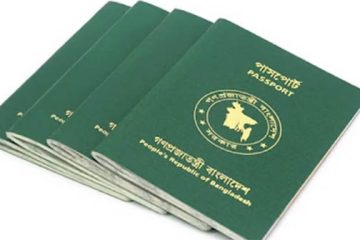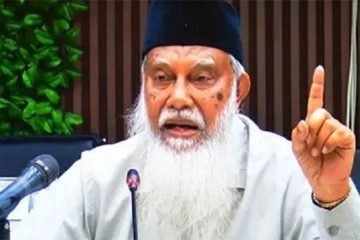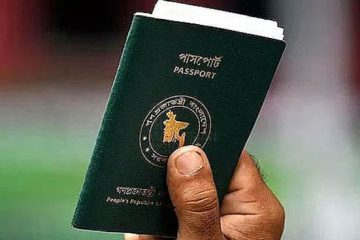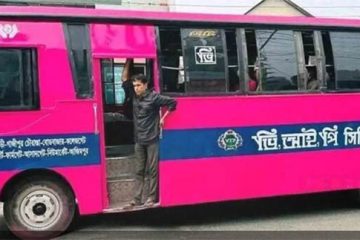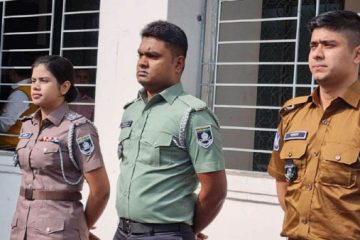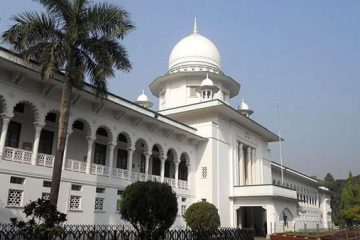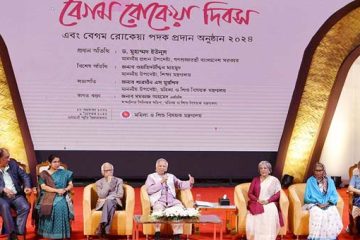The High Court on Tuesday warned the government saying that it would show zero tolerance towards death in custody.
The bench of Justice AHM Shamsuddin Chowdhury and Justice Md Delwar Hossain asked former law minister Abdul Matin Khasru, also a ruling Awami League lawmaker, and additional attorney general Murad Reza to convey the warning to the government.
It is the duty of the government and the law enforcers to protect the life of people in their custody, the court said.
It said the government would need to face dire consequences for any recurrence of custodial death.
The court gave the warning during the hearing in a contempt of court proceedings drawn against the Chittagong metropolitan police commissioner, M Muniruzzaman, for his failure to appear in court along with a report on the custodial death of Mohammad Manik, a night guard of the Anjuman Market at Reazuddin Bazar, who died on May 11 in the custody of the Chittagong Kotwali police allegedly from torture.
The warning came at a time when the law enforcers continued with extrajudicial killing, in which a large number of the victims were reportedly in custody, in the name of ‘crossfire’ or ‘encounter’ in defiance of the ban imposed by the High Court on such killing.
Thirty-five people have so far been killed in such incidents of extrajudicial killing since December 14, 2009 when the High Court asked the authorities not to kill any more people in ‘crossfire’ or ‘encounter’ until it hears the rule it issued suo moto on the government in this regard on November 17, 2009.
After the December 14 ban on ‘crossfire,’ no person had been killed by the law enforcers in such incidents till January 9.
The law enforcer came up with such extrajudicial killing on January 9 after the hearing in the rule became uncertain as the chief justice on January 7 reshuffled the High Court benches posting Justice AFM Abdur Rahman and Justice Md Emdadul Haque Azad, who issued the rule, to separate benches.
The government, on the other hand, is yet to reply to the rules the High Court had issued much earlier asking it to explain why extrajudicial killing by law enforcers in the name of ‘crossfire’ or ‘encounter’ would not be declared illegal.
The bench of Justice Syed Mahmud Hossain and Justice Quamrul Islam Siddiqui, on June 29, 2009 issued a rule after hearing a public interest litigation writ petition filed by rights organisations Ain o Salish Kendra, Bangladesh Legal Aid and Services Trust and Karmajibi Nari challenging the legality of extrajudicial killing.
The High Court first came up with a ruling on extrajudicial killing on May 25, 2006.
In the ruling, the bench of Justice M Awlad Ali and Justice Zinat Ara asked the government to explain why the reported killing of Tunda Ismail, who was in fetters in police custody, should not be properly investigated and why the perpetrators should not be brought to justice.
Tunda Ismail, shown arrested in an arms case and remanded in police custody for interrogation, was killed in ‘crossfire,’ as claimed by the police, at Lalbagh on May 22, 2006.
The bench of Justice Syed Muhammad Dastagir Husain and Justice Mamnoon Rahman on August 6, 2006 issued a rule asking the government and the Rapid Action Battalion to explain why they should not be directed to ensure the security of the people detained in their custody.
The court issued the order after hearing a public interest litigation writ petition filed by rights organisation Human Rights and Peace for Bangladesh, which sought the court’s directive on the government and the battalion to protect the life of anyone detained from being killed in ‘crossfire’ or ‘encounter.’
Although the government had already replied to the August 6, 2006 rule, the case is yet to be disposed of, the rights group’s counsel Manzill Murshid said.
On Tuesday, the bench of Justice AHM Shamsuddin Chowdhury and Justice Md Delwar Hossain court, however, exonerated Chittagong metropolitan police commissioner M Muniruzzaman of the contempt of court proceedings.
The same bench on May 23 asked Muniruzzaman to appear in the court on June 1 to explain why he would not be punished on contempt of court charges for disobeying its order.
Earlier on May 12, it ordered Muniruzzaman to appear before it on May 23 along with a report on the custodial death of Mohammad Manik.
On May 12, after hearing a public interest litigation writ filed by rights organisation Bangladesh Human Rights and Peace for Bangladesh, the same bench asked the government to explain in three weeks why it would not be directed to ensure safety of any detained accused, and to take steps under the criminal law against police officers who are liable for any torture and killings in custody.
It also asked the home secretary to form an inquiry committee, excluding the police officials, to investigate the killing of Mohamad Manik at the Chittagong Kotwali police station and report on it.
The court on Tuesday exonerated Muniruzzaman of the contempt charges after he had appeared in the bench and offered unconditional apology, saying he failed to report on time because of the delay in receiving the order. He told the court his office had already suspended the police officer responsible for the death of Manik.
The court also exonerated Kotwali police subinspector Yunus Mia, allegedly responsible for the death, of the contempt charges as a case had been filed against him with a local court on charges of killing Manik in custody.
The court will, however, hear the writ petition after the government submits its reply to the rule issued on May 12.

